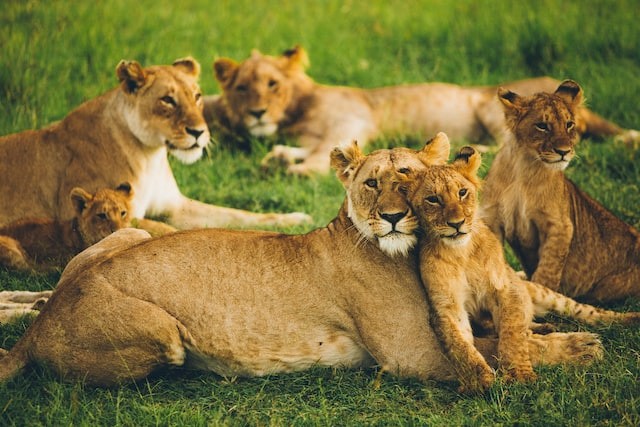A young family spending the night at Taronga Zoo had only 30 seconds to leave their opulent glamping tents when five lions broke out of their pen only a few meters from the place they were resting.
Five dangerous lions at Taronga Zoo escaped

Magnus and Dominique Perri of Sydney, along with their young kids Lucas and Oliver, were sleeping in the zoo's Roar and Snore tents as they were awakened at around 4 am on Wednesday by the sound of lions roaring and grumbling, as per DailyMail.
The family promptly returned to sleep, Mr. Perri said, thinking the lions were securely held in their enclosure just a few meters away because the sounds of animals were touted as an important component of the experience.
However, less than three hours later, at 6:40 am, a loud alarm rang out across the zoo, and Taronga Zoo staff members ran through the campsite pleading with campers to leave right away because lions were on the loose.
According to Mr. Perri, the family and roughly 50 other Roar and Snore overnighters were led outside and taken to a secure location for the following 90 minutes.
The executive director of Taronga Zoo, Simon Duffy, informed the media on Wednesday morning that an adult lion and four pups had escaped around 6:30 am.
The zookeeper reported that the lions were sighted in a small area close to the main lion exhibit in which a six-foot fence divided them from the rest of the zoo.
'The zoo has very strict safety standards in place for such an emergency, and fast action was taken. One lion cub was securely tranquilized, and four of the lions peacefully made their way back into their main display and dens.
Police from NSW arrived at the location, however, they later reported that the zoo was handling the problem on its own.
Security to wild animals
Modern aquariums and zoos use sophisticated tools to assess the welfare of their animals and make sure they are giving care that satisfies their physical and behavioral demands while minimizing bad welfare, as per Wild Welfare.
The care standards for animals kept in captivity all around the world continue to vary, however, despite advancements in animal welfare science.
The care given to animals after a zoo's doors close for the day is just as crucial, if not more so, as during peak visiting periods.
The level of care given can have a significant impact on an animal's overall welfare, including nocturnal animals that need opportunities of being active after dark, cozy bedding, and nesting opportunities.
Animals occasionally could stay indoors longer than they can access the outside.The importance of a zoo prioritizing efforts to make sure environments are species-appropriate, and secure, and encourage natural behaviors, such as searching for food, pleasant sleeping, and social or solitary activities, is significant if such an animal must be kept inside at night.
With millions of wild animal species being housed in tens of thousands of zoos and other institutions for captive wild animals around the world, each with unique and complicated needs, it is no easy undertaking to make sure they always receive the appropriate care and welfare that is deserved.
However, ensuring that all zoos correctly uphold their responsibilities for animal welfare by acknowledging that some fundamental operating procedures which are widespread around the world can jeopardize an animal's capacity to thrive.
© 2025 NatureWorldNews.com All rights reserved. Do not reproduce without permission.





